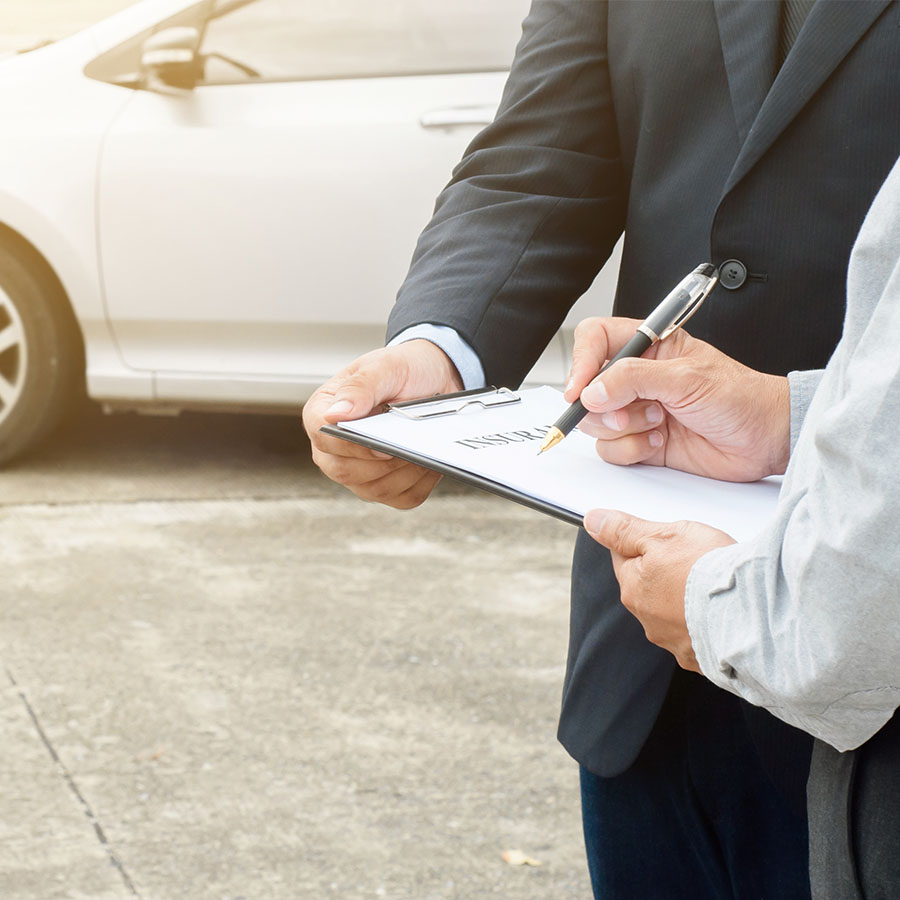A personal injury is any type of injury caused by someone’s negligence. That “someone” may be a person or a company. Negligence means the wrongful party failed to act or acted in a way that caused an injury. The injury may be a physical one such as a broken leg, death or lacerations. It could be damage to property such as a totaled car or house.
You have Two Years to file a Personal Injury Lawsuit in Arizona
Arizona has specific laws devoted to obtain damages, or money, from the wrongful party. One vital law pertains to how long an injured person has to file a lawsuit against the wrongful party. This is called statute of limitations.
Arizona only allows an injured person two years to file a lawsuit. The two years start from the date of the accident. For instance, a driver collided into another car while driving in the valley on February 26, 2014. They were distracted and the time and ran a red light. The other driver suffered serious injuries.
The injured driver has two years from the date of the crash. That two-year period ends on February 26, 2016. If the injured driver fails to file a lawsuit by 2016, they’re barred from suing the wrongful driver. The legal term “barred” means the injured person can’t file a lawsuit. The wrongful party gets away with causing the accident and not paying any money to the victim.
There Is an Exception to the Two-Year Rule
Arizona does allow an exception to the two-year rule for any injuries discovered later. This situation typically occurs during with a medical malpractice claim. Medical malpractice is a type of personal injury where a medical professional such as a doctor harms a patient because of their negligence.
The most common medical malpractice is when a doctor misdiagnoses a heart attack patient with heartburn. If the patient discovers five years later that he had a mild heart that damaged his heart, he may sue. When a person discovers their injury later, the person has two years from the date of discovery to sue. So if the person discovered they had irreparable heart damage in 2015, they have until 2017 to sue their doctor.
Other Statute of Limitations Laws
Although majority of individuals wanting to sue for a personal injury in Arizona, some accidents have a different time limit and process. For instance, any personal injury claim made against a city, county or Arizona has a statute of limitations of a year.
Personal injury claims are filed at the courthouse. However, any claims against a government agency must be filed with the particular agency that caused the accident. The injured victim must file a formal claim within 180 days. If the claim isn’t resolved they have to file a lawsuit within one year of the accident date.
Another exception is if the injured person is under 18 years old. The minor child can’t sue until they turn of age. Thus, statute of limitations for them starts when they turn 18 years old. A person who is injured, but considered of unsound mind must wait until they are sane. They can then sue the wrongful party for damages. They amount of time they have to sue is the same, two years.
Nevada Statute of Limitations Varies
Nevada statute of limitations depends on the type of injury a person sustained. For instance, a medical malpractice and products liability claim has a statute of limitations of four years. A negligent personal injury claim and wrongful death has a statute of limitations of two years. Both wrongful death and negligence claims include the discovery period. This means a person can sue after the two-year period when the injury was discovered later.
Contact a Personal Injury Lawyer Regarding Your Potential Claim
You only have two years to file a lawsuit in Arizona. Time passes quickly when you’re trying to recover from injuries or pay funeral expenses for a loved one killed because of someone’s negligence. Contact Lamber-Goodnow for help. We are located in Arizona, Nevada, Colorado and Illinois. We’re available to help you with your personal claim within the statute of limitations. Contact us.
What Do I Do if the Other Driver’s Insurance Company Contacts Me?
 In the days after a car accident, the other driver’s insurance company will contact you to discuss what happened. If you were injured in the accident and are seeking compensation through the other driver’s insurance, the company will also send you documents in the mail.
In the days after a car accident, the other driver’s insurance company will contact you to discuss what happened. If you were injured in the accident and are seeking compensation through the other driver’s insurance, the company will also send you documents in the mail.
Q: Should you get a lawyer?
A: The smartest decision you can make after a car accident is to get a lawyer. Then, when the other driver’s insurance adjuster calls you, you can tell him to talk to your lawyer concerning the accident, not you. If you receive any forms in the mail, you can consult with your lawyer before signing anything to make sure that you don’t sign away your rights.
Q: Why will an insurance adjuster phone you?
A: The reason that an insurance adjuster will contact you on the phone is to request that you provide him with a recorded statement. When you don’t have much experience or knowledge of what’s going on, this seems like a reasonable request. The problem is how the insurance adjuster will use this recorded statement. Since the adjuster is working for the other driver’s insurance company, he is working against you. He doesn’t want to figure out what is a fair amount of compensation for the damages you suffered in the accident. All he wants to do is obtain sufficient evidence to either dismiss your claim entirely or reduce the amount that his company ends up paying you.
Don’t assume that you’ll be fine providing a recorded statement because the accident wasn’t your fault and you’re only going to tell the truth. Insurance adjusters know how to get the evidence they need against you. Keep in mind that this is their job, and they look for ways to get other driver’s claims reduced every day. If you’re anything like the average driver, you probably don’t get in many car accidents, which means you have little experience dealing with insurance adjusters. You’re in their world, which puts you at a significant disadvantage.
There is no way that making a recorded statement to the other driver’s insurance adjuster will help your claim, but there are plenty of ways that it can hurt your claim. With those potential results, you should always decline a request for a recorded statement. If you have a lawyer, you can refer the adjuster to him. The benefit of having a lawyer is that what your lawyer says to the adjuster can’t be used against you later, because you’re not the one providing the information. If you tell the insurance adjuster that you were speeding, they can use it. If your lawyer says that you were speeding, it doesn’t matter, because he is a third party who didn’t see what happened. No lawyer would actually do that, but it’s an example of the protection you have when your lawyer discusses the accident instead of you.
Q: What if you receive a mail from an insurance company?
A: If you receive something in the mail that the other insurance company wants you to sign and return, ask your lawyer first. If it’s a medical authorization release, which is common after an injury claim, signing this will give the insurance adjuster the right to look into your entire medical history. Not only is this an invasion of your privacy, but it also gives the adjuster the opportunity to look for any previous symptoms you’ve demonstrated that he could claim are evidence of a preexisting condition that you had before the accident. This helps him reduce your compensation.
Q: Why shouldn’t you sign a medical authorization?
A: You should never sign a medical authorization release, because the insurance adjuster doesn’t need to see your entire medical history. He only needs to see documentation pertinent to your injury claim, such as a report made by a doctor who examined you after the accident. Your lawyer can select the appropriate documents to send so you don’t have to.
Q: Should you sign anything for the driver’s insurance company?
A: You’re under no obligation to say or sign anything for the other driver’s insurance company after an accident. It’s much better for you if you avoid doing anything before you’ve spoken with a lawyer. Insurance companies convince drivers to incriminate themselves or sign away their rights all the time.


